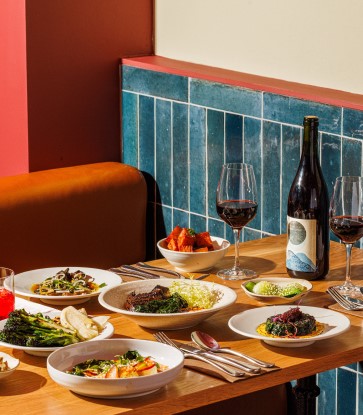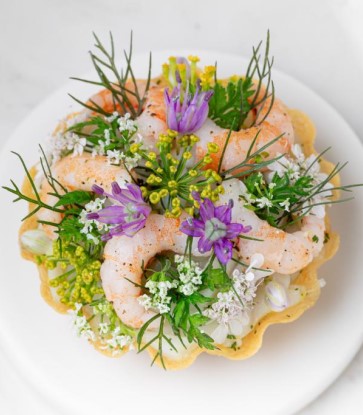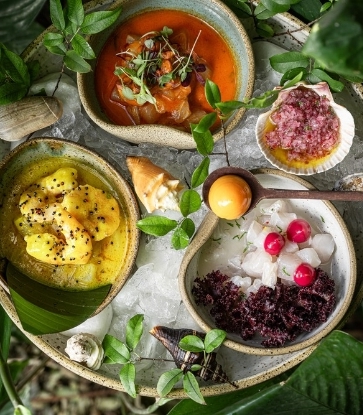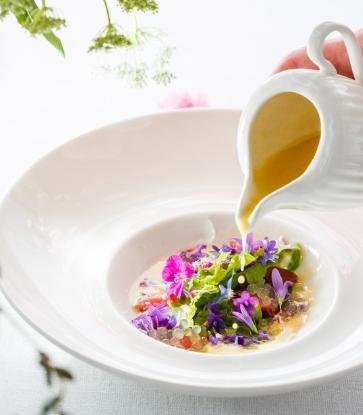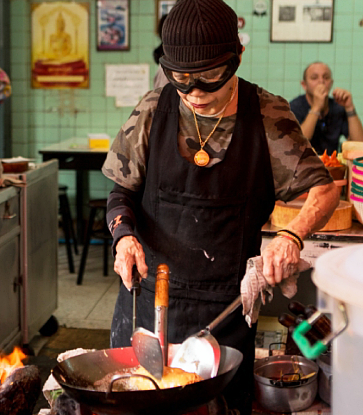Monday 20th May marks World Bee Day – a global celebration of bees and the role they play within our ecosystem. The date was chosen to coincide with the birth date of Slovenian beekeeper Anton Janša, one of the pioneers of modern beekeeping.
The UK is home to over 250 species of bee, and they differ in their appearance, behaviour, pollination habits and habitat. The two most common are the bumblebee (round and fuzzy) and the honeybee (smaller and thinner, with a clear distinction between the head and abdomen); so, be careful if you’re swatting at what you think is a wasp, as it may well be a honeybee – which, unlike the bumblebee, can only sting once before it dies!

Honeybees are hyper-social honey-producers who live alongside tens of thousands of their fellow bees in hives located in hollow trees or in man-made structures in domesticated colonies. Bumblebees, meanwhile, live in wild nests with a few hundred fellow bees – they are better pollinators but produce only enough honey for consumption within their nest.
Scientific studies have shown a decline in bee populations over the years due to global warming, habitat loss, monocrop agriculture and the use of pesticides. As one of the major pollinators, bees are a vital part of the world’s ecosystem: they promote biodiversity, ensure food security and significantly contribute to the mitigation of climate change. Not only do they play their part in environmental conservation but in providing food, preventing hunger and supporting the global economy.
As awareness of these impacts have been brought to the fore in recent years, it has become increasingly obvious that we must all work together to protect bees’ habitats and ensure their survival. Put quite simply, without bees, there would be no life!

Many Michelin Green Star restaurants have incorporated beekeeping into their daily activities. Cal Byerley of Pine in East Wallhouses told us more about the activities at his restaurant…

Other restaurants getting involved with beekeeping include:
Coombeshead Farm, Lewannick
Honey is harvested from their own hives.
Interlude, Lower Beeding
They have seven beehives, around which they have planted wild heather, in order to give the honey its own distinct flavour.
L'Enclume, Cartmel
Bees help create a closed-loop system on their 12 acre farm in the Cartmel Valley, and their honey is used in the restaurant.
Moor Hall, Aughton
They have four beehives and a wildflower meadow which further supports bee conservation; this also helps fertilise the produce they grow.
Petersham Nurseries Café, London
They have seven on-site beehives. Each mature colony can produce around 45 kilos of honey and honeycomb a year, which they use in the café.
Restaurant Sat Bains, Nottingham
They have two beehives that can produce up to 60 litres of wild, unpasteurised honey for the restaurant.
The Dining Room at Whatley Manor, Malmesbury
A local beekeeper farms four hives located in the grounds.
The Small Holding, Kilndown
They have set up a wildflower meadow to help the bees they keep on their on-site farm.

Bottom Image from One Michelin Star Aniar, Galway




